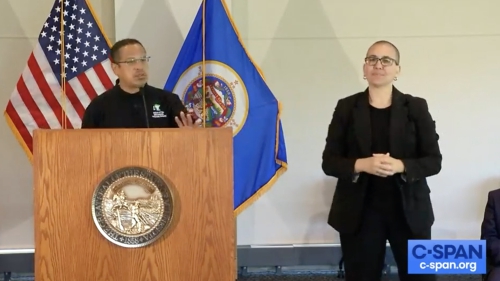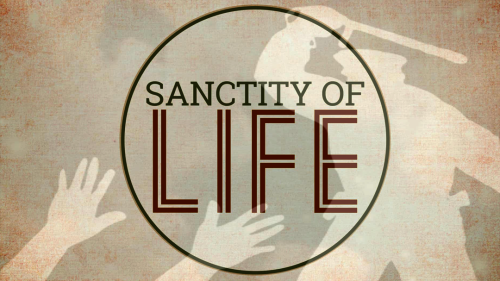Judge Orders Release of Florida Muslim Held on Secret Evidence
(iviews.com) A Florida immigration judge ruled this week that a Muslim professor may be released on bond after being held for more than three years without charge.
Dr. Mazen Al-Najjar, a professor at the University of South Florida was detained because of allegations that he supported terrorism because of his association with the group Palestinian Islamic Jihad.
Activists and supporters of the professor say he is one of nearly two dozen held by government authorities based on the "secret evidence" law, which enables officials to detain individuals without revealing the evidence against them.
But an immigration judge ruled in October 2000 that the INS had failed in a ten-day public hearing to show that Al Najjar posed any threat to national security.
In the ruling, Judge Kevin McHugh wrote that the documents provided by the government failed "to provide [Al-Najjar] with notice of the evidence against him and a meaningful opportunity to defend against that evidence," the Associated Press reported.
"We are delighted and relieved. Mazen Al Najjar has spent over three years behind bars, despite having never been charged with a single crime, on the basis of secret evidence he has never seen. This is only the latest in an unbroken string of defeats for the INS in cases where it has sought to lock up immigrants on the basis of secret evidence, and it illustrates, once again, that the INS's practice cannot be squared with due process," said David Cole, Al Najjar's lead counsel and a professor at Georgetown University Law Center.
Najjar may leave prison Friday morning after posting $8,000 bail. He was originally scheduled for release today, but the government requested a 24-hour stay of the judge's order.
"We thank God for this great gift during the holy month. The truth has finally come out. Our community is very happy that Mazen will celebrate Ramadan with his family and children after more than 43 months in detention. Although secret evidence is shameful, this is a tribute to the greatness of the American judicial system," said Sami Al-Arian, Chairman of the Tampa Bay Coalition for Justice and Peace.
Another Muslim held on secret evidence for four years in Virginia, Algerian politician Anwar Haddam, has recently been granted political asylum and may be freed if the Justice Department does not appeal that ruling by today. Arab and Muslim American leaders have long called for his release.
Legislation banning most uses of secret evidence in immigration cases passed through the House Judiciary Committee this year, but was not offered for a vote in the full House. The Secret Evidence Repeal Act (H.R. 2121), sponsored by Rep. David Bonior (D-MI) and Rep. Tom Campbell (R-CA), is expected to be re-introduced in the next session, according to a recent statement from the Council on American-Islamic Relations (CAIR), a Washington-based Islamic advocacy group.
"The fact that a person can be held in an American jail for more than three years without charge and without knowing why he is detained should be a wake up call for all those who love justice," said Ibrahim Hooper, spokesman for CAIR.
Hooper added that secret evidence is used almost exclusively against Muslims and Arabs. He said that every time a court has the opportunity to address the use of secret evidence, the practice is found to be unconstitutional and the detainee is released.

















